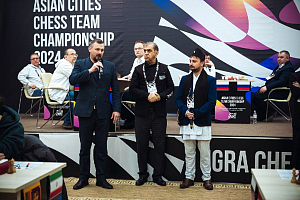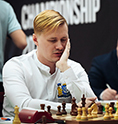Person of day - 6 JULY 2023
ADOLF ANDERSSEN
Adolf Anderssen, a professor and teacher of German and mathematics, entered chess history as the victor of the first international tournament, which took place in 1851 in London. This remarkable achievement, as well as his victories against the world’s strongest masters at that time, allowed Anderssen to consider himself an unofficial world champion after London.
Andrerssen was, perhaps, one of the most notable representatives of chess romanticism. His style earned the awe of his contemporaries: his consistent determination to attack, his beautiful combinations and his multiple dramatic sacrifices… His “easy” game against Kieseritzky entered chess history as an “immortal game”. This was also the adjective prescribed to his game against Dufresne, which was also called the “unbeatable and evergreen.”
In 1958 in Paris, a match took place between Anderssen and Paul Morphy, the wunderkind from New Orleans who came to Europe to compete against the best grandmasters of the Old World. Anderssen was defeated decisively: he won only two games, losing seven and drawing two more. But the American’s dominance mainly manifested itself in strategy. Anderssen’s attacks were often haphazard and unprepared. Meanwhile, Morphy’s main task was to mobilise his forces and swing the balance-of-power, which precluded a successful attack. Anderssen did not like to defend, and often claimed that “the best form of defence is attack”.
After Morphy quit chess, Anderssen was once again considered the strongest chess player in the world and he confirmed this with a spectacular victory at the 2nd international tournament on Lisbon in 1862, when he won 12 points out of 13! Nonetheless, in 1866, Anderssen lost a match to Steinitz 6:8, but defeated Zukertort two years later by a score of 8,5:3,5. In 1870, new successes came to him- he won a tournament in Baden-Baden, defeating Steinitz twice and equalizing the total score. In later years, Anderssen would perform in tournaments and matches with varying success.
His last tournament was the one in Frankfurt-and-Maine in 1878, when he came third. A year later, the great chess romantic passed away.
Anderssen made a sizeable contribution to the evolution of gambits. He put forward several interesting ideas in the French Defence and the Ruy Lopez. “He was the greatest master of his age. His wonderful attacking style, his style in combinations and his depth of analysis were simply spectacular,” wrote Wilhelm Steinitz about Adolf Anderssen.






















